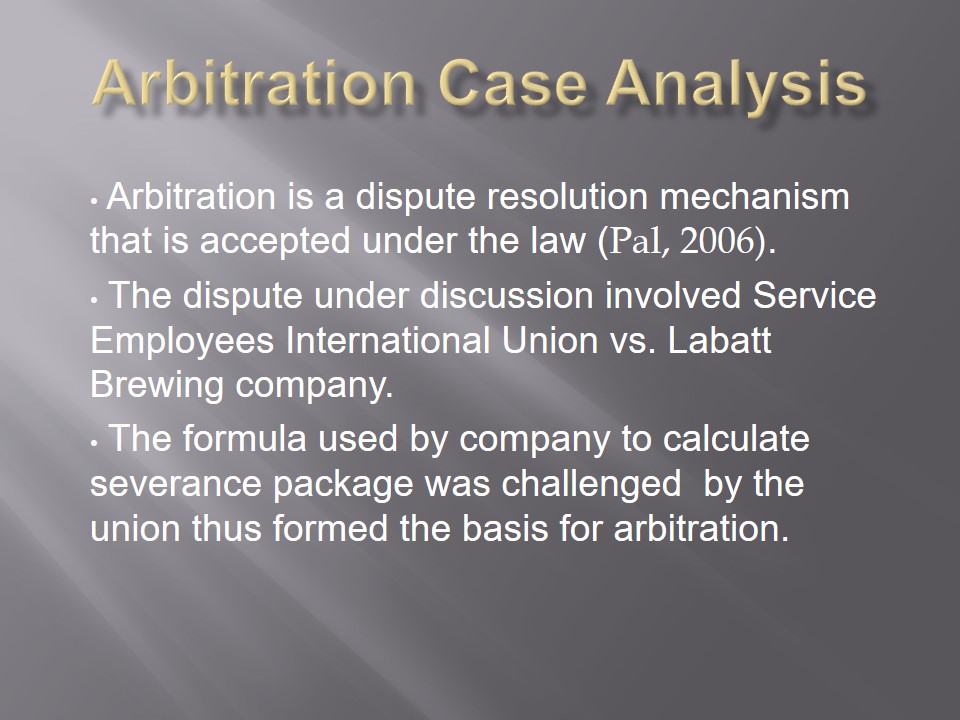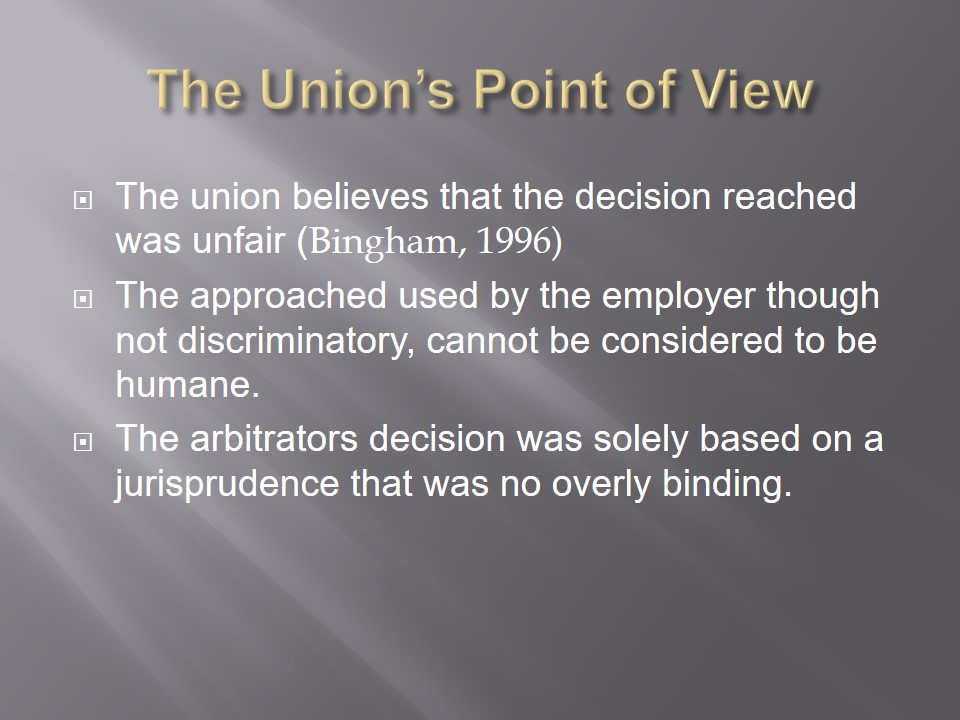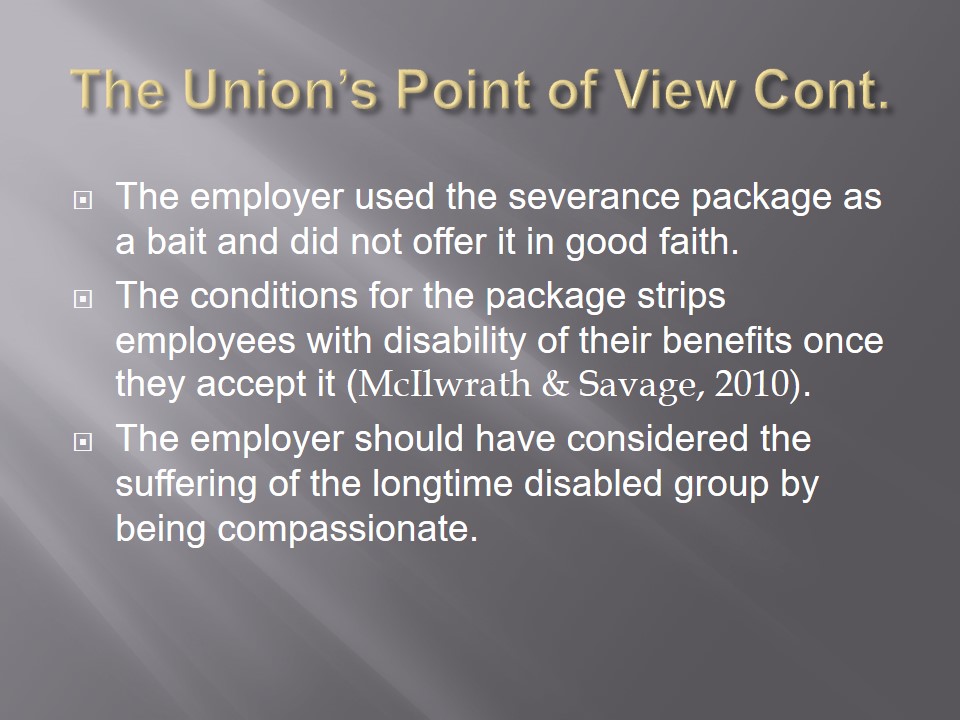Arbitration Case Analysis
- Arbitration is a dispute resolution mechanism that is accepted under the law (Pal, 2006).
- The dispute under discussion involved Service Employees International Union vs. Labatt Brewing company.
- The formula used by company to calculate severance package was challenged by the union thus formed the basis for arbitration.
Arbitration as a dispute resolution mechanism is binding and recognized under the law. Parties with disputes elect to go the arbitration way because of advantages that come with this mode of finding a solution and also because they believe that they would not be prejudiced.
The arbitration case between Service Employees International Union vs. Labatt brewing company in Ontario provides an insight that can be used to study arbitration as a dispute resolution mechanism.

The Union’s Point of View
- The union believes that the decision reached was unfair (Bingham, 1996)
- The approached used by the employer though not discriminatory, cannot be considered to be humane.
- The arbitrators decision was solely based on a jurisprudence that was no overly binding.
- The arbitrator failed to protect the employees yet they had all the power to make a binding decision.
- Each employee under full employment is entitled to all benefits that will be agreed upon whether they are actively working or not.
- The arbitrator failed to single out the employers evasive tactics.
- The employer used the severance package as a bait and did not offer it in good faith.
- The conditions for the package strips employees with disability of their benefits once they accept it (McIlwrath & Savage, 2010).
- The employer should have considered the suffering of the longtime disabled group by being compassionate.
The decision by the arbitrator to deny the Union its prayers can be described as unfair and reached without consideration of factors that could go either way (Pal, 2006, p. 56).
Whereas the company offered its employees a severance package plan that was not discriminatory, the approach is not humane enough towards persons under long-term disability and WSIB.
Whereas the company offered its employees a severance package plan that was not discriminatory, the approach is not humane enough towards persons under long-term disability and WSIB. First off, the employment act confers all employees with equal opportunities from the time they apply for work (McIlwrath & Savage, 2010, p. 34).
As employees of the company, the aggrieved members remained employees of the company and were entitled to all the increments that had been given to other employees. All benefits that were given by the company were meant for all employees regardless their availability to work (Bingham, 1996, p. 108).
On their other hand, the deal arm twists employees with a disability by considering those with disability and who take the offer to be considered to have terminated their disability claims. Such an offer was unfair, and the arbitrator should have seen it as tailored to disenfranchise the suffering employees.



References
¨McIlwrath, M., & Savage, J. (2010). International arbitration and mediation: A practical guide. New York, NY: Kluwer Law International.
¨Bingham, L. B. (1996). Emerging due process concerns in employment arbitration: A look at actual cases. Labor Law Journal, 47(2), 108- 109.
¨Pal, M. S. (2006). Faith-based arbitration in Canada and beyond: Recent developments and future prospects. Richmond BC, Canada: The Institute for Trans-border Studies.